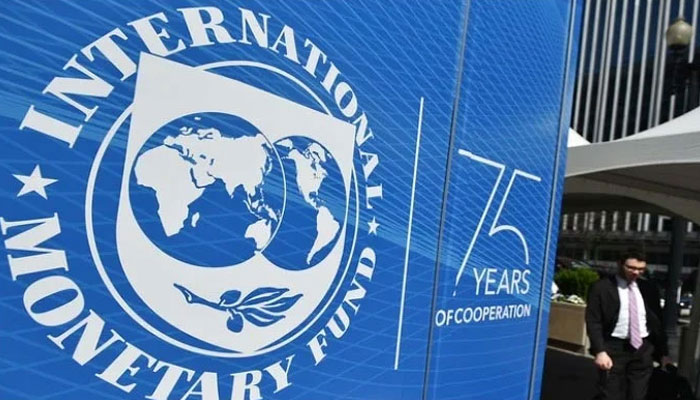Last-ditch efforts under way to salvage IMF programme
If the SLA is not struck in the next few days ahead of the upcoming budget the ongoing programme will fail
ISLAMABAD: As Pakistan’s options recede for the revival of the stalled IMF programme, both sides will have to take tough decisions to break the existing deadlock.
Now last-ditch efforts are underway for a breakthrough ahead of the upcoming budget but if the deadlock persists over the next few days, hopes for reviving the IMF programme will fade.
The hopes are diminishing each day mainly because the ongoing programme of $6.5 billion under the Extended Fund Facility (EFF) will expire on June 30, 2023. The parleys between Pakistan and the IMF continue for the completion of the 9th Review under the EFF programme, which became due on November 3, 2022. The talks resumed from January 31, 2023, to February 9, 2023, but remained futile. Since then, the Staff Level Agreement (SLA) could not be signed till now.
If the SLA is not struck in the next few days ahead of the upcoming budget for 2023-24, scheduled to be unveiled on June 9, 2023, the ongoing programme will face a failure.
“There are a couple of options left for moving forward. The first is by signing the SLA on an immediate basis and forwarding Pakistan’s request before the IMF Executive Board for approving the next tranche of $1 billion and also securing an extension in the EFF programme period by a few months in order to accomplish the 10th and 11th Reviews,” top official sources said in background discussions here on Sunday.
The second option could be combining the 9th and 10th Reviews and for Pakistan to share upcoming budgetary numbers with the IMF.
Then the SLA should be signed after the announcement of the budget for 2023-24 and in case of its approval from parliament, the IMF’s Executive Board could approve combined tranches and also grant an extension to the EFF programme for accomplishing the 11th Review by July or August 2023.
“There are no easy options available; both sides will have to work out modalities for evolving a consensus. But with the existing approach of maintaining the status quo, no breakthrough can be achieved,” said the official.
When contacted, Dr Khaqan Najeeb, former Adviser Ministry of Finance, said the heightened political uncertainty, less-than-desirable economic management and inability to secure enough external sector financing just may be some of the reasons the country has been unable to secure a staff level agreement with the IMF.
The delay originally started on 3rd Nov and then after 10th Feb, has brought new areas like the budget and Pakistan’s financing options beyond June 2023 into focus with the IMF. These are not easily answerable queries for a government managing an economy in a crisis-like situation. “Pakistan’s options are limited and without an IMF programme, the default risk would stay elevated and the reserves weak.”
Options for striking the SLA in the next few days or combining the 9th and 10th Reviews and then asking for an extension of the programme beyond June are there but are starting to look difficult, he said and added that life without the IMF means additional financing from friendly countries, rollovers and commercial financing at higher costs.
But those who know better are aware that this is all temporary as any interim or new setup would have to seek another programme support with the IMF since repayment needs $25 billion.
This would be in addition to monies for current account financing for FY24 and that feels near impossible without the IMF, he concluded.
-
 Czech Republic Supports Social Media Ban For Under-15
Czech Republic Supports Social Media Ban For Under-15 -
 Prince William Ready To End 'shielding' Of ‘disgraced’ Andrew Amid Epstein Scandal
Prince William Ready To End 'shielding' Of ‘disgraced’ Andrew Amid Epstein Scandal -
 Chris Hemsworth Hailed By Halle Berry For Sweet Gesture
Chris Hemsworth Hailed By Halle Berry For Sweet Gesture -
 Blac Chyna Reveals Her New Approach To Love, Healing After Recent Heartbreak
Blac Chyna Reveals Her New Approach To Love, Healing After Recent Heartbreak -
 Royal Family's Approach To Deal With Andrew Finally Revealed
Royal Family's Approach To Deal With Andrew Finally Revealed -
 Super Bowl Weekend Deals Blow To 'Melania' Documentary's Box Office
Super Bowl Weekend Deals Blow To 'Melania' Documentary's Box Office -
 Meghan Markle Shares Glitzy Clips From Fifteen Percent Pledge Gala
Meghan Markle Shares Glitzy Clips From Fifteen Percent Pledge Gala -
 Melissa Jon Hart Explains Rare Reason Behind Not Revisting Old Roles
Melissa Jon Hart Explains Rare Reason Behind Not Revisting Old Roles -
 Meghan Markle Eyeing On ‘Queen’ As Ultimate Goal
Meghan Markle Eyeing On ‘Queen’ As Ultimate Goal -
 Japan Elects Takaichi As First Woman Prime Minister After Sweeping Vote
Japan Elects Takaichi As First Woman Prime Minister After Sweeping Vote -
 Kate Middleton Insists She Would Never Undermine Queen Camilla
Kate Middleton Insists She Would Never Undermine Queen Camilla -
 King Charles 'terrified' Andrew's Scandal Will End His Reign
King Charles 'terrified' Andrew's Scandal Will End His Reign -
 Winter Olympics 2026: Lindsey Vonn’s Olympic Comeback Ends In Devastating Downhill Crash
Winter Olympics 2026: Lindsey Vonn’s Olympic Comeback Ends In Devastating Downhill Crash -
 Adrien Brody Opens Up About His Football Fandom Amid '2026 Super Bowl'
Adrien Brody Opens Up About His Football Fandom Amid '2026 Super Bowl' -
 Barbra Streisand's Obsession With Cloning Revealed
Barbra Streisand's Obsession With Cloning Revealed -
 What Did Olivia Colman Tell Her Husband About Her Gender?
What Did Olivia Colman Tell Her Husband About Her Gender?




